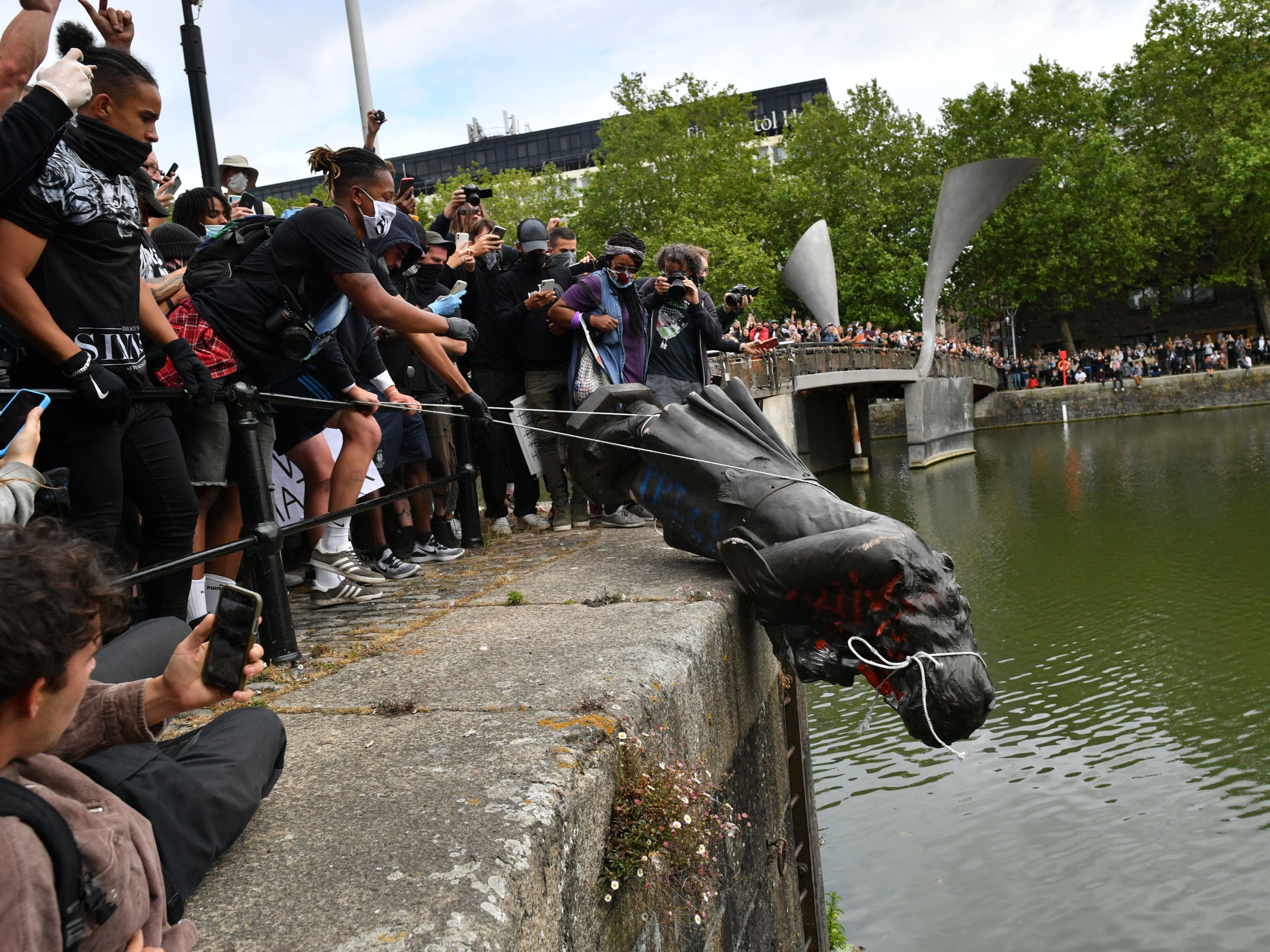Government plans on making it harder to remove controversial statues in new protections from ‘baying mob’
‘When it comes to protecting our heritage, due process has been overridden,’ Robert Jenrick says

Your support helps us to tell the story
From reproductive rights to climate change to Big Tech, The Independent is on the ground when the story is developing. Whether it's investigating the financials of Elon Musk's pro-Trump PAC or producing our latest documentary, 'The A Word', which shines a light on the American women fighting for reproductive rights, we know how important it is to parse out the facts from the messaging.
At such a critical moment in US history, we need reporters on the ground. Your donation allows us to keep sending journalists to speak to both sides of the story.
The Independent is trusted by Americans across the entire political spectrum. And unlike many other quality news outlets, we choose not to lock Americans out of our reporting and analysis with paywalls. We believe quality journalism should be available to everyone, paid for by those who can afford it.
Your support makes all the difference.The government plans on introducing new legal protections for statues linked to colonialism and racism, with a minister saying the UK should not try to edit or censor its history.
Robert Jenrick, the communities secretary, said decisions to take down heritage assets in England will need both planning permission and a consultation with local communities to go ahead.
Last year a statue of 17th-century slave trader Edward Colston was toppled and thrown in water in Bristol during anti-racism protests and a fresh debate was sparked over statues with links to colonialism and racism.
A monument of a slave owner Robert Milligan was removed by a local authority in London in June, after Labour councils vowed to start reviewing such monuments.
Elsewhere in the capital, Guy's and St Thomas' hospitals removed two statues from public view due to slave trade links.
Writing in The Sunday Telegraph, Mr Jenrick said there had recently been attempts to “erase” pieces of "our national story”.
“This has been done at the hand of the flash mob, or by the decree of a ‘cultural committee’ of town hall militants and woke worthies,” he said.
“We live in a country that believes in the rule of law, but when it comes to protecting our heritage, due process has been overridden. That can’t be right.”
Mr Jenrick added: “What has stood for generations should be considered thoughtfully, not removed on a whim or at the behest of a baying mob."
In the article with the headline “We will save Britain's statues from the woke militants who want to censor our past”, the minister laid out new legal protections for statues.
“I am changing the law to protect historic monuments and ensure we don’t repeat the errors of previous generations. Proper process will now be required.”
The death of George Floyd while in the custody of police in Minneapolis sparked protests across the world, with the Colston statue dumped into Bristol Harbour and a memorial to Sir Winston Churchill vandalised with the words “is a racist”.
The statue of Churchill – as well as Nelson Mandela – were given protected covering in summer amid fears over clashes between right-wing groups and Black Lives Matter protesters.
Speaking last June, Boris Johnson said: “The statue of Winston Churchill in Parliament Square is a permanent reminder of his achievement in saving this country – and the whole of Europe – from a fascist and racist tyranny.”
The UK prime minister added: “Yes, he sometimes expressed opinions that were and are unacceptable to us today, but he was a hero, and he fully deserves his memorial.”
Additional reporting by Press Association



Join our commenting forum
Join thought-provoking conversations, follow other Independent readers and see their replies
Comments